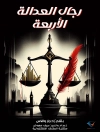In ‘Fairy Legends and Traditions of the South of Ireland, ‘ T. Crofton Croker intricately weaves together a collection of folklore and fairy tales that encapsulate the rich oral traditions of the Irish countryside. Characterized by its lyrical prose and vivid imagery, Croker’s work transcends mere storytelling, presenting a scholarly examination of the intrinsic connections between the supernatural and the cultural practices of rural Ireland during the early 19th century. The narrative reveals themes of magic, morality, and the everyday lives of both the enchanted and the ordinary, all situated within the broader context of Romanticism’s fascination with the folkloric and the arcane. T. Crofton Croker, an esteemed Irish antiquarian and folklorist, was deeply influenced by his surroundings and the vibrant oral traditions passed down through generations. His dedication to preserving these tales stemmed from a desire to articulate the unique cultural identity of Ireland during a period of social upheaval. Croker’s extensive travels and immersion in the myths of his homeland enabled him to curate a collection that honors both the peculiarities and profundities of Irish folklore. This enchanting volume is a must-read for anyone interested in folklore, literature, or the cultural heritage of Ireland. Croker’s diligent documentation not only illuminates the intricacies of these legends but also invites readers to explore the mystical layers of Irish culture. Discover the timeless magic of these fairy legends, and immerse yourself in a world where the extraordinary seamlessly intertwines with the everyday.
About the author
Thomas Crofton Croker (1798 – 1854) was an Irish antiquary, born in Cork. His research and literary work were rooted in the rich vein of Irish folklore and legend. Crocker’s early fascination with the supernatural and the traditions of his homeland crystallized in his most famous work, ‘Fairy Legends and Traditions of the South of Ireland’ (1825), which remains a significant piece in the study of Celtic folklore and has been republished multiple times. His meticulous collection of tales, involving fairies, leprechauns, and other mystical creatures, portrayed not only the beguiling myths but also the Celtic affinity to the mystical and the moral ethos interwoven in these narratives. Croker’s work significantly influenced the Victorian craze for fairy literature and folklore studies, marking him as a pioneer in the field that would flourish with later contributors such as W.B. Yeats. Not merely a gatherer of stories, Croker’s scholarly approach underlined his compilations, rendering them invaluable to cultural historians and literature enthusiasts. His literary style often mimicked the vernacular of the Irish peasantry, providing an authentic flavor to the tales while also preserving the oral tradition. He was a member of various literary and antiquarian societies, and his dedication to the conservation of Irish cultural heritage continues to be commemorated in scholarly references and reissues of his work.












